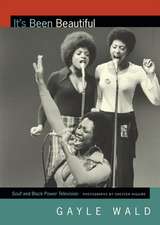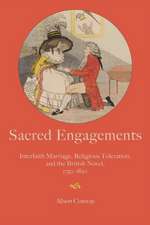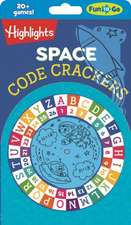Crossing the Line – Racial Passing in Twentieth–Century U.S. Literature and Culture: New Americanists
Autor Gayle Walden Limba Engleză Paperback – 23 iul 2000
Din seria New Americanists
-
 Preț: 265.41 lei
Preț: 265.41 lei -
 Preț: 240.90 lei
Preț: 240.90 lei -
 Preț: 231.99 lei
Preț: 231.99 lei -
 Preț: 265.02 lei
Preț: 265.02 lei -
 Preț: 337.24 lei
Preț: 337.24 lei -
 Preț: 262.32 lei
Preț: 262.32 lei -
 Preț: 268.31 lei
Preț: 268.31 lei -
 Preț: 310.83 lei
Preț: 310.83 lei -
 Preț: 260.19 lei
Preț: 260.19 lei -
 Preț: 263.47 lei
Preț: 263.47 lei -
 Preț: 206.44 lei
Preț: 206.44 lei -
 Preț: 262.91 lei
Preț: 262.91 lei -
 Preț: 260.96 lei
Preț: 260.96 lei -
 Preț: 305.83 lei
Preț: 305.83 lei -
 Preț: 236.66 lei
Preț: 236.66 lei -
 Preț: 231.12 lei
Preț: 231.12 lei -
 Preț: 301.59 lei
Preț: 301.59 lei -
 Preț: 302.96 lei
Preț: 302.96 lei -
 Preț: 263.47 lei
Preț: 263.47 lei -
 Preț: 311.01 lei
Preț: 311.01 lei -
 Preț: 303.88 lei
Preț: 303.88 lei -
 Preț: 303.88 lei
Preț: 303.88 lei -
 Preț: 309.49 lei
Preț: 309.49 lei -
 Preț: 268.68 lei
Preț: 268.68 lei -
 Preț: 302.36 lei
Preț: 302.36 lei -
 Preț: 231.00 lei
Preț: 231.00 lei -
 Preț: 231.12 lei
Preț: 231.12 lei -
 Preț: 262.32 lei
Preț: 262.32 lei -
 Preț: 232.14 lei
Preț: 232.14 lei -
 Preț: 263.47 lei
Preț: 263.47 lei -
 Preț: 303.72 lei
Preț: 303.72 lei -
 Preț: 239.54 lei
Preț: 239.54 lei -
 Preț: 315.08 lei
Preț: 315.08 lei -
 Preț: 304.86 lei
Preț: 304.86 lei -
 Preț: 242.06 lei
Preț: 242.06 lei -
 Preț: 300.62 lei
Preț: 300.62 lei -
 Preț: 308.33 lei
Preț: 308.33 lei -
 Preț: 301.59 lei
Preț: 301.59 lei -
 Preț: 305.83 lei
Preț: 305.83 lei -
 Preț: 241.29 lei
Preț: 241.29 lei -
 Preț: 266.18 lei
Preț: 266.18 lei -
 Preț: 266.77 lei
Preț: 266.77 lei -
 Preț: 266.18 lei
Preț: 266.18 lei -
 Preț: 262.32 lei
Preț: 262.32 lei -
 Preț: 394.23 lei
Preț: 394.23 lei -
 Preț: 238.39 lei
Preț: 238.39 lei -
 Preț: 264.64 lei
Preț: 264.64 lei -
 Preț: 236.13 lei
Preț: 236.13 lei
Preț: 264.05 lei
Nou
Puncte Express: 396
Preț estimativ în valută:
50.53€ • 54.87$ • 42.45£
50.53€ • 54.87$ • 42.45£
Carte tipărită la comandă
Livrare economică 23 aprilie-07 mai
Preluare comenzi: 021 569.72.76
Specificații
ISBN-13: 9780822325154
ISBN-10: 0822325152
Pagini: 272
Ilustrații: 11 b&w photos
Dimensiuni: 152 x 236 x 20 mm
Greutate: 0.45 kg
Ediția:New.
Editura: MD – Duke University Press
Seria New Americanists
ISBN-10: 0822325152
Pagini: 272
Ilustrații: 11 b&w photos
Dimensiuni: 152 x 236 x 20 mm
Greutate: 0.45 kg
Ediția:New.
Editura: MD – Duke University Press
Seria New Americanists
Recenzii
"Crossing the Line offers a superbly well-developed analysis of narratives of racial passing and a strategy for engaging such narratives. It will set the standard for subsequent treatments of racial passing."--Dana Nelson, author of National Manhood: Capitalist Citizenship and the Imagined Fraternity of White Men
"Crossing the Line offers a superbly well-developed analysis of narratives of racial passing and a strategy for engaging such narratives. It will set the standard for subsequent treatments of racial passing."--Dana Nelson, author of National Manhood: Capitalist Citizenship and the Imagined Fraternity of White Men
"Crossing the Line offers a superbly well-developed analysis of narratives of racial passing and a strategy for engaging such narratives. It will set the standard for subsequent treatments of racial passing."--Dana Nelson, author of National Manhood: Capitalist Citizenship and the Imagined Fraternity of White Men
Notă biografică
Textul de pe ultima copertă
"Deeply engaging, well-researched, and effective, "Crossing the Line" is a fine multidisciplinary study not only of passing narratives but of the social, political, and economic struggles that they negotiate in racial terms."-- Priscilla Wald, author of "Constituting Americans: Cultural Anxiety and Narrative Form"
Cuprins
Preface
Acknowledgments
Introduction: Race, Passing, and Cultural Representation
>1. Home Again: Racial Negotiations in Modernist African American Passing Narratives
>2. Mezz Mezzrow and the Voluntary Negro Blues
3. Boundaries Lost and Found: Racial Passing and Cinematic Representation, circa 1949
>4. “I’m Through with Passing”: Postpassing Narratives in Black Popular Literary Culture
5. “A Most Disagreeable Mirror”: Reflections on White Identity in Black Like Me
Epilogue: Passing, “Color Blindness,” and Contemporary Discourses of Race and Identity
Notes
Bibliography
Index
Acknowledgments
Introduction: Race, Passing, and Cultural Representation
>1. Home Again: Racial Negotiations in Modernist African American Passing Narratives
>2. Mezz Mezzrow and the Voluntary Negro Blues
3. Boundaries Lost and Found: Racial Passing and Cinematic Representation, circa 1949
>4. “I’m Through with Passing”: Postpassing Narratives in Black Popular Literary Culture
5. “A Most Disagreeable Mirror”: Reflections on White Identity in Black Like Me
Epilogue: Passing, “Color Blindness,” and Contemporary Discourses of Race and Identity
Notes
Bibliography
Index
Descriere
Examines constructions of racial identity through the exploration of passing narratives including forties jazz musician Mezz Mezzrow's memoir Really the Blues


















